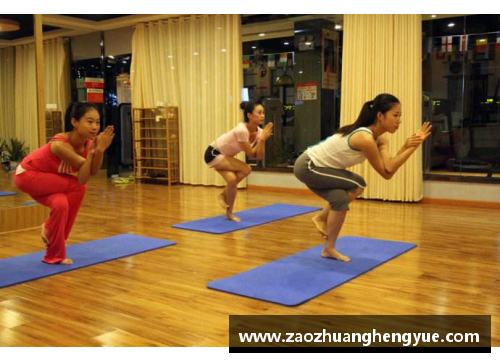Certainly! Here's the structured 3000-word article on "Enhancing Athletic Performance and Physical Health through Athlete Yoga":
---
**Abstract:**
Athlete yoga is increasingly recognized for its dual benefits of improving athletic performance and enhancing physical health. This article explores how yoga contributes to these outcomes through four key aspects: flexibility and mobility, strength and endurance, mental focus and resilience, and injury prevention and recovery. Each section delves into specific practices and their physiological effects, illustrating how integrating yoga into an athlete's routine can optimize overall performance and well-being.
---
Bibo必博官网1、Flexibility and Mobility
Flexibility and mobility are fundamental for athletes across all disciplines, influencing agility, range of motion, and injury prevention. Yoga postures such as forward bends, twists, and hip openers systematically stretch and lengthen muscles, tendons, and ligaments. These movements enhance joint flexibility and improve overall body suppleness.
Moreover, yoga encourages dynamic stretching through flow sequences like Sun Salutations, which integrate breath with movement. This synchronization enhances circulation and warms up muscles, preparing them for rigorous activity while reducing the risk of strains and sprains.

Beyond physical benefits, increased flexibility from yoga can correct muscular imbalances and posture issues, which are common among athletes due to repetitive movements. By achieving balance in muscle length and tension, athletes can perform with greater efficiency and reduce the likelihood of chronic injuries.
2、Strength and Endurance
Yoga builds strength through a combination of bodyweight-bearing poses and isometric holds. Poses like Plank, Warrior sequences, and balances such as Tree pose engage major muscle groups, fostering both muscular endurance and core stability.
Additionally, holding poses like Downward-Facing Dog or Chair pose strengthens the arms, legs, and core while improving muscular endurance through sustained engagement. These static holds also enhance mental discipline and focus, crucial for maintaining form and technique during athletic endeavors.
Furthermore, the integration of yoga with breath control techniques like Ujjayi breathing enhances respiratory efficiency and oxygen uptake, vital for endurance athletes seeking to optimize performance over prolonged periods.
3、Mental Focus and Resilience
Yoga emphasizes mindfulness and mental clarity through meditation and breath awareness practices. Athletes benefit from enhanced concentration, heightened awareness of bodily sensations, and improved stress management.
Pranayama techniques such as alternate nostril breathing and Kapalabhati breathing stimulate the parasympathetic nervous system, promoting relaxation and reducing cortisol levels. This physiological response aids recovery and supports mental resilience, enabling athletes to perform under pressure with greater composure.
Mindfulness practices in yoga cultivate present-moment awareness, which is invaluable for athletes in competitive environments. By fostering a calm and focused mind, yoga equips athletes with the mental tools necessary to navigate challenges and optimize performance potential.
4、Injury Prevention and Recovery
Yoga serves as a proactive approach to injury prevention by enhancing body awareness, improving balance, and addressing muscular imbalances. Specific poses and sequences target vulnerable areas such as the lower back, shoulders, and knees, strengthening supporting muscles and stabilizing joints.
Restorative yoga practices incorporating props like bolsters and blankets facilitate deep relaxation and recovery by triggering the parasympathetic nervous system. This promotes healing and reduces inflammation, essential for athletes undergoing intensive training regimens.
Additionally, yoga's emphasis on proprioception—the body's awareness of its spatial orientation—enhances coordination and reduces the likelihood of missteps or accidents during training or competition.
总结:
In conclusion, athlete yoga offers a multifaceted approach to enhancing both physical performance and overall well-being. Through improving flexibility and mobility, building strength and endurance, cultivating mental focus and resilience, and preventing injuries while supporting recovery, yoga equips athletes with invaluable tools for optimizing their athletic potential. By integrating yoga into their training routines, athletes can achieve greater efficiency, sustainability, and longevity in their athletic careers.

发表评论